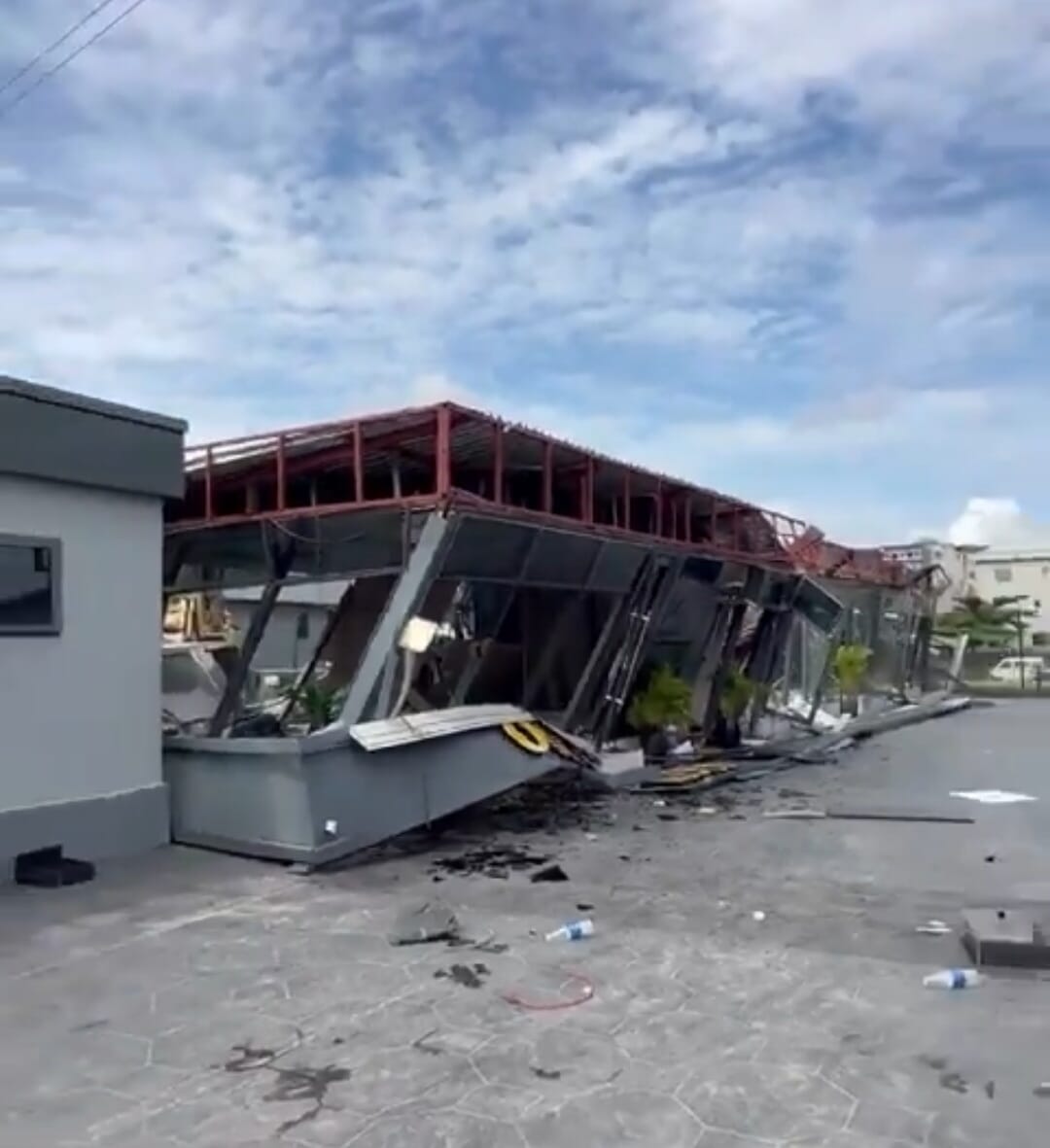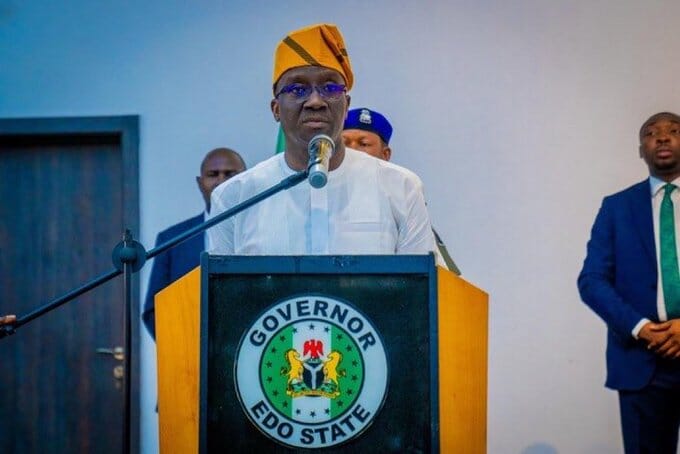The Lagos State Government has demolished the car showroom belonging to popular luxury car influencer Ola of Lagos. This incident, captured in a viral video, highlights ongoing tensions between urban development policies and private enterprises in one of Africa's busiest cities. As videos of heavy machinery tearing down the structure circulate online, questions arise about the reasons behind this action and its impact on young entrepreneurs like Ola.
The demolition occurred at the Trade Fair Complex in Ojo, Lagos, as part of a larger operation targeting illegal structures. Ola of Lagos, whose real name is Waris Olayinka Akinwande, has built a massive following by showcasing high-end vehicles and living a lavish lifestyle. His showroom, known as OOL Autos, was a symbol of his success story from social media fame to real-world business empire. Now, reduced to rubble, it serves as a stark reminder of the challenges facing businesses in regulated urban areas.
Who Is Ola of Lagos? Background on the Luxury Car Influencer
Ola of Lagos rose to prominence through Instagram and TikTok, where he reviews and promotes luxury cars, often highlighting their prices and features in a relatable yet aspirational way. With millions of followers, he has become a go-to figure for car enthusiasts in Nigeria and beyond. His content frequently features exotic brands like Mercedes, BMW, and Lamborghini, positioned against the backdrop of Lagos' vibrant streets.
Born and raised in Lagos, Ola started his journey as a content creator before venturing into car dealership. His showroom at the Trade Fair Complex was not just a business; it was a hub for car lovers, hosting events and serving as a launchpad for his international expansions, including plans for outlets in South Africa. Ola's story is one of hustle and determination, inspiring many young Nigerians to pursue entrepreneurship in the competitive automotive sector.
However, success in Nigeria's bustling economy often comes with hurdles, including regulatory compliance. The demolition of his showroom underscores how even high-profile businesses can fall afoul of government policies aimed at urban planning and safety.
Viral Video Breakdown: What the Footage Shows About the Demolition
The viral video capturing the demolition has amassed thousands of views across platforms like TikTok, Instagram, and X (formerly Twitter). In the clip, heavy excavators can be seen ripping apart the modern structure of the showroom. Glass shatters, metal frames bend, and debris scatters across the ground under a partly cloudy sky. The footage, lasting about 19 seconds in some versions, shows the building's roof collapsing and walls crumbling, with plants and signage from OOL Autos visible amid the wreckage.
Longer versions, such as those shared on YouTube, provide more context. One video features a narrator expressing heartbreak over the scene, noting how Ola's showroom represented youthful ambition. The audio includes sounds of machinery grinding against concrete, with onlookers in the background voicing dismay. "This is heartbreaking," one voice says, echoing the sentiment of many viewers.
This video has sparked widespread debate online, with hashtags like #OlaOfLagostrending. It not only documents the physical destruction but also captures the emotional toll on those involved.
Reasons Behind Lagos State Government Demolition of Car Showrooms
The Lagos State Government has justified the demolition as part of an effort to remove illegal structures at the Trade Fair Complex. According to reports, Ola's showroom was built under high-tension electricity wires, posing significant health and safety risks to occupants and the surrounding area. Such locations violate building codes designed to prevent accidents and ensure public safety.
This action is not isolated. Recently, the government demolished 19 buildings in the same complex for similar reasons, including road encroachments and defective structures. Officials have denied any ethnic bias, emphasizing that the operations target non-compliant buildings regardless of ownership. In a broader context, Lagos is undergoing rapid urbanization, with authorities cracking down on unauthorized constructions to improve infrastructure, drainage, and overall city planning.
Critics argue that demolitions often lack sufficient notice, leaving business owners like Ola with massive losses. In this case, questions remain about whether proper warnings were issued or if alternative locations were offered. The government has stated that affected parties can apply for reallocations, but the process can be bureaucratic and time-consuming.
Public Reactions to Ola of Lagos Showroom Demolition Video
The public response has been swift and divided. On social media, supporters of Ola express outrage, viewing the demolition as an attack on entrepreneurial spirit. Comments like "They can destroy buildings, but not destiny" flood Instagram posts, with many encouraging Ola to rebuild stronger. Influencers and fans have shared messages of solidarity, highlighting Ola's contributions to the Nigerian car industry.
Conversely, some defend the government's actions, arguing that rules must be enforced for the greater good. "If it's under power lines, it's a hazard," one commenter noted on Nairaland. Discussions also touch on broader issues, such as why demolitions seem frequent in Nigeria, with users questioning property rights and government priorities.
This demolition raises critical questions about the balance between growth and regulation in Lagos. As Nigeria's economic hub, the city faces immense pressure from population growth, leading to informal constructions. While demolitions aim to create safer, more organized spaces, they often displace livelihoods without immediate alternatives.
For Ola of Lagos, this could be a setback or a turning point. Known for his resilience, he may use this as motivation to expand elsewhere, perhaps focusing on compliant locations or digital sales. His international ambitions, like the South African outlet, remain unaffected, offering a silver lining.
On a larger scale, such events could deter investment if perceived as arbitrary. Experts suggest that governments should enhance communication, provide relocation assistance, and streamline approval processes to foster a business-friendly environment.
What Happens Next After the Demolition?
As the dust settles, attention turns to Ola's next moves. Will he challenge the demolition legally? Reports indicate no immediate statements from him, but fans await updates. The Lagos State Government may face scrutiny if more details emerge about the process.
In the meantime, this event serves as a cautionary tale for entrepreneurs: compliance is key in regulated markets. For viewers of the video, it's a vivid illustration of the harsh realities behind glossy social media facades.
Stay tuned for updates on this story. If you have insights or reactions, share them in our social media comments.
Read More
- Unbelievable: 17-Year-Old Acquires 14,000 Hectares in Edo, Sparks Statewide Probe
- Why Did President Tinubu Pardon Herbert Macaulay?
- How Nigerian Police Cyber Intelligence Unmasked and Nabbed the ARISE TV Staff Killers
- National Assembly Erupts: House of Representatives Clash Over Nnamdi Kanu's Deteriorating Health
- BREAKING: Federal Court Issues Arrest Warrant for Former INEC Chairman Mahmood Yakubu

